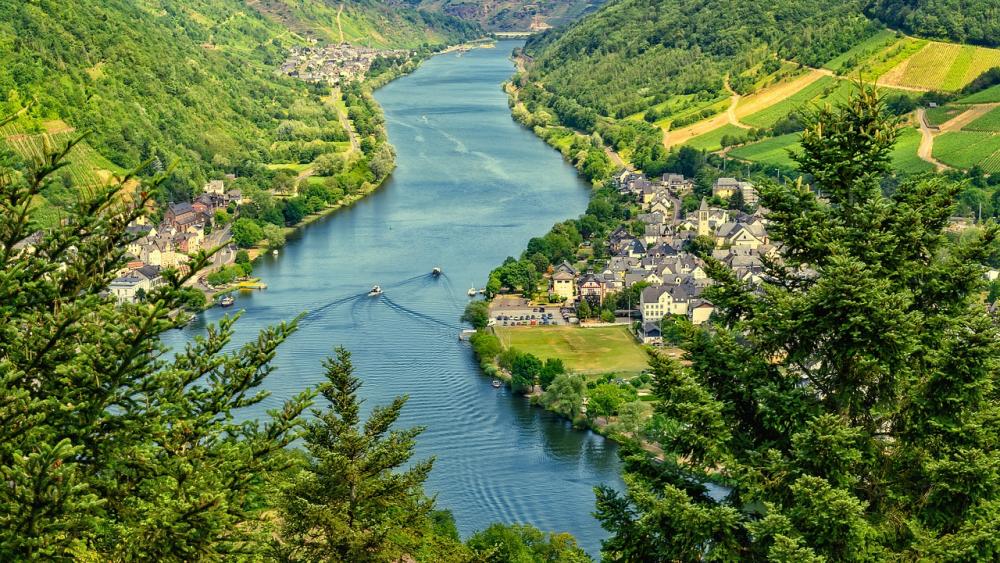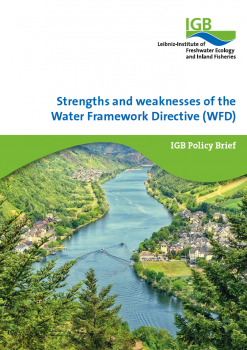
Agriculture and settlement, road, rail and shipping traffic: waterbodies and their floodplains, such as the river Moselle, are often heavily used. Therefore, water protection and resource use should be more balanced. For this purpose, the European Water Framework Directive (WFD) is a technically sound and target-oriented policy document. | Photo: Tama66/pixabay
The WFD requires all water bodies in the EU to achieve at least good chemical and ecological status or good ecological potential by 2027. However, since the WFD came into effect 19 years ago, little improvement of the status of EU water bodies has been observed. 60 per cent of all water bodies in the EU fall short of the target; in Germany, action is required in no less than 93 per cent of the flowing waters and in 73 per cent of the standing waters.
“Reasons for the poor performance are not down to the Water Framework Directive itself. In fact, this is a technically sound and expedient policy document. But the very limited ecological improvements that have been observed to date indicate that the directive falls short of striking an appropriate balance between the conflicting goals of protecting fresh waters and using them as a resource – and that significant shortcomings exist in the practical implementation,“ explains Professor Mark Gessner, Acting Director of IGB and co-author of the IGB Policy Brief.
Rooting water protection as a cross-sectional task in other policy areas
IGB concludes that new integrative approaches are urgently needed at the political, administrative and practical implementation level. Restoration projects must be planned at much larger scale, and the measures taken must be more effective. Administrative processes must be systematically improved, and procedures need to be devised and established for resolving conflicts. Towards this goal, it is essential to root sustainable water management systematically in all relevant policy areas. This is particularly important for the domains of agriculture, energy (including hydropower), transport (shipping), mining and, of course, flood control and nature conservation.
Unless there is a firm commitment to sustainable management and ecological improvement, the multiple functions of fresh waters as habitat and key resource in Europe cannot be preserved or restored. Pressure to use fresh waters as a resource is ever growing, and global climate and environmental change is rapidly advancing, including the widespread loss of biodiversity.
“This is why we must strictly adhere to the principles and objectives of the WFD beyond 2027,“ concludes Mark Gessner, adding that “notwithstanding its excellent basis, the directive requires significant improvements in its practical implementation.“
About the IGB Policy Brief on the WFD
In 2019, IGB was involved in the expert consultation as part of the “fitness check” of the WFD carried out by the EU. On this occasion, the present IGB Policy Brief addresses six points that draw attention to key strengths and weaknesses of the WFD to inform the public debate.
Read the IGB Policy Brief on the Water Framework Directive >
“Research for the Future of our Freshwaters” is IGB’s guiding principle. This involves giving objective and evidence-based information and advice to policymakers, authorities, associations, industry, educational institutions and the public. By publishing its Policy Briefs, IGB provides evidenced-based information to the public free of charge.






